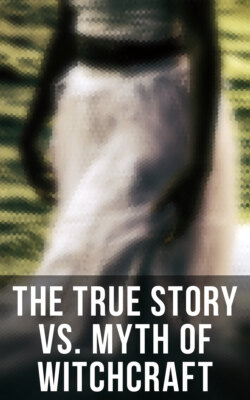Читать книгу The True Story vs. Myth of Witchcraft - William Godwin - Страница 92
На сайте Литреса книга снята с продажи.
Demigods.
ОглавлениеThe early history of mortals in Greece is scarcely separated from that of the Gods. The first adventurer that it is perhaps proper to notice, as his exploits have I know not what of magic in them, is Perseus, the founder of the metropolis and kingdom of Mycenae. By way of rendering his birth illustrious, he is said to have been the son of Jupiter, by Danae, the daughter of Acrisius, king of Argos. The king, being forewarned by an oracle that his daughter should bear a son, by whose hand her father should be deprived of life, thought proper to shut her up in a tower of brass. Jupiter, having metamorphosed himself into a shower of gold, found his way into her place of confinement, and became the father of Perseus. On the discovery of this circumstance, Acrisius caused both mother and child to be inclosed in a chest, and committed to the waves. The chest however drifted upon the lands of a person of royal descent in the island of Seriphos, who extended his care and hospitality to both. When Perseus grew to man’s estate, he was commissioned by the king of Seriphos to bring him the head of Medusa, one of the Gorgons. Medusa had the wonderful faculty, that whoever met her eyes was immediately turned into stone; and the king, who had conceived a passion for Danae, sent her son on this enterprise, with the hope that he would never come back alive. He was however favoured by the Gods; Mercury gave him wings to fly, Pluto an invisible helmet, and Minerva a mirror-shield, by looking in which he could discover how his enemy was disposed, without the danger of meeting her eyes. Thus equipped, he accomplished his undertaking, cut off the head of the Gorgon, and pursed it in a bag. From this exploit he proceeded to visit Atlas, king of Mauritania, who refused him hospitality, and in revenge Perseus turned him into stone. He next rescued Andromeda, daughter of the king of Ethiopia, from a monster sent by Neptune to devour her. And, lastly, returning to his mother, and finding the king of Seriphos still incredulous and obstinate, he turned him likewise into a stone.
The labours of Hercules, the most celebrated of the Greeks of the heroic age, appear to have had little of magic in them, but to have been indebted for their success to a corporal strength, superior to that of all other mortals, united with an invincible energy of mind, which disdained to yield to any obstacle that could be opposed to him. His achievements are characteristic of the rude and barbarous age in which he lived: he strangled serpents, and killed the Erymanthian boar, the Nemaean lion, and the Hydra.
